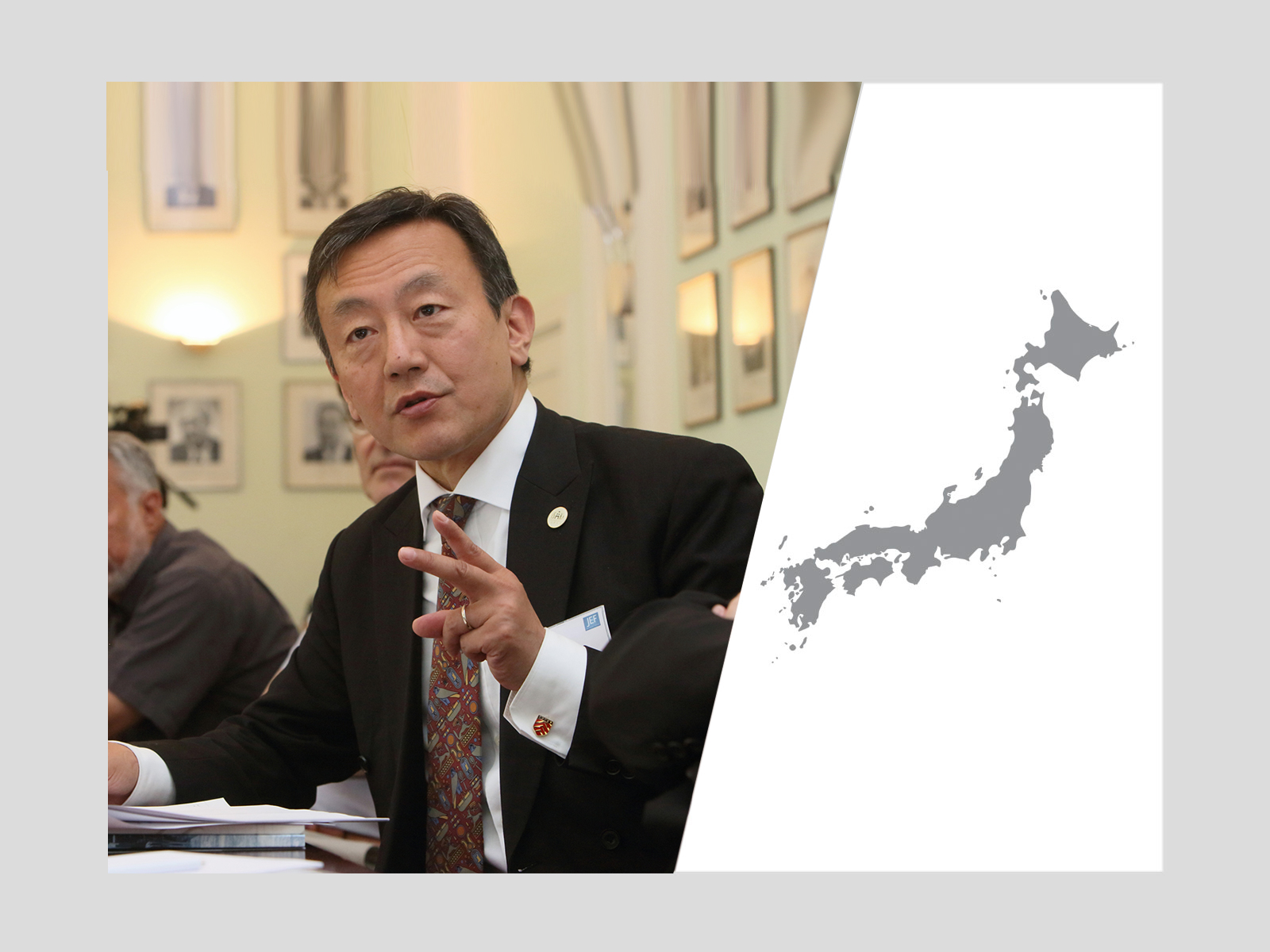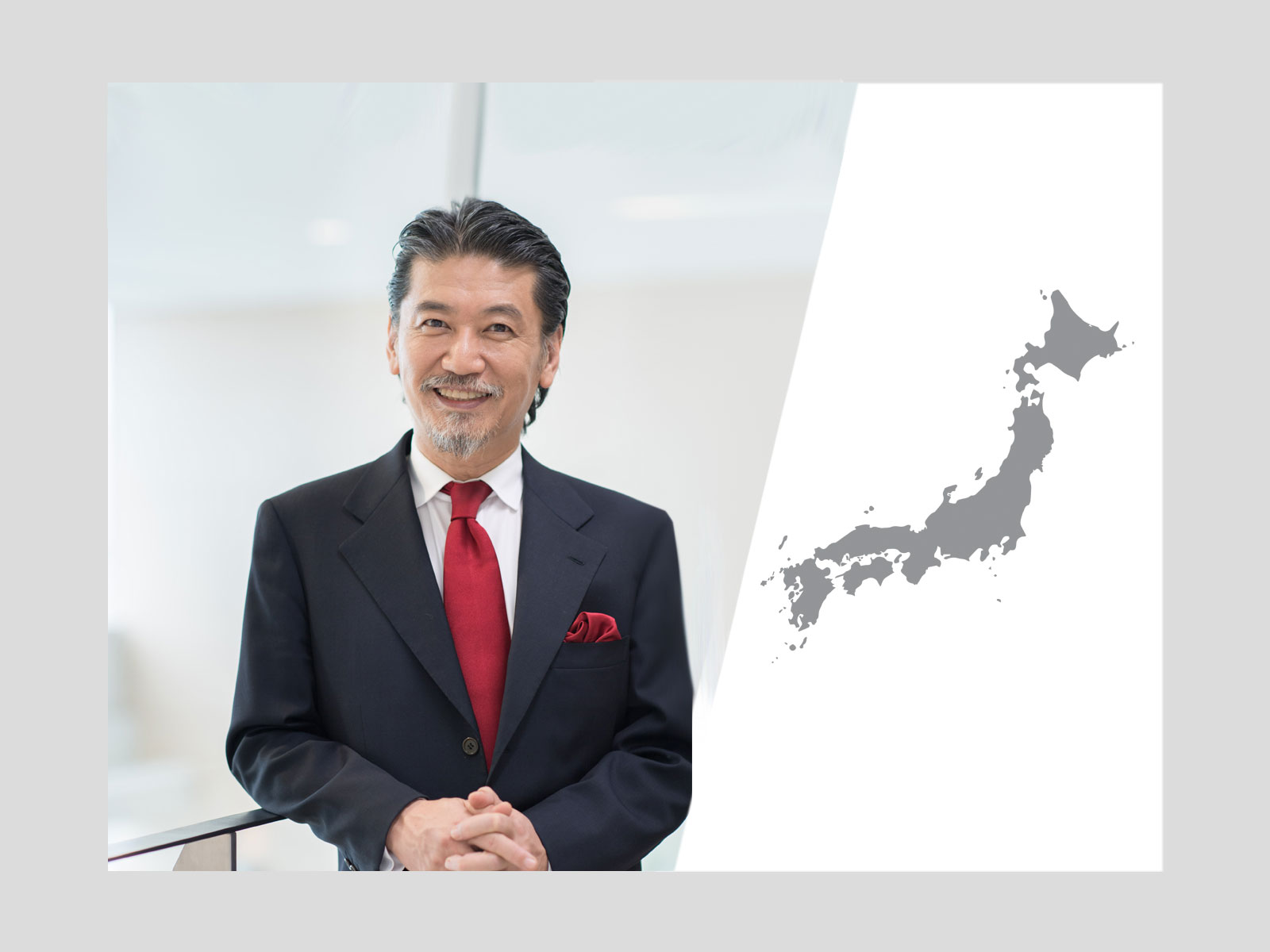BIZNEWS: Japan took the central stage as the official partner country for CeBIT 2017, Europe’s largest trade show of its kind. As the key organization accelerating Japan’s foreign trade with Germany, JETRO Berlin with you at its forefront played a crucial role conceptualising and coordinating the Japanese presence at this important fair that marked another milestone within the long-standing close partnership between Japan and Germany. Looking back, what is your overall assessment of the Japanese presence at CeBIT 2017?
Hitoshi Masuda: For us, being the partner country of such a significant fair was of huge importance so we planned things very carefully and wanted to show Japan from its best side. And now looking at the figures we can proudly say that we have achieved this objective. With two pavilions with a total size of 7,200sqm, or what Germans would call “a good football field”, Japan had a larger presence than any partner country ever before. More importantly, we brought 118 Japanese companies to the fair to fill these pavilions. Yet, what is interesting to note here is that 50 of these companies were start-ups and SME’s that showcased their products and services for the first time outside of Japan. It was one of our priorities to give such smaller but highly innovative companies a platform. And the response from their side was just great. We were all very pleasantly surprised by the great interest of these smaller companies in embracing this opportunity and reaching out to the world. And at the same time, we also got a very positive response from the German side and from other fair-comers.
In this context, I would like to share a nice anecdote with you: I remember when the Minister for Economy of Lower Saxony visited the start-up and SME section of our pavilions. While we introduced him to one of these companies he was very surprised because an entrepreneur approached him, without a tie, but with almost perfectly spoken German. This is the new breed of entrepreneurs we have in Japan: young, innovative and open to the world. And this is exactly the message we wanted to convey to the global audience. I am proud to say that we have achieved this.
All in all I guess CeBIT 2017 gave Japan back some confidence. This was of course also due to the strong support we had from the highest political level. Prime Minister Shinzo Abe opening the fair together with Chancellor Merkel was significant for us. They together proposed the “Society 5.0”. We have organised and participated in many international trade shows and exhibitions , but the CeBIT this year was something I haven’t experienced before. The presence of Prime Minister Abe and Chancellor Merkel was a huge honour for us at JETRO and underlined the importance of the event. So in summary we can say that CeBIT 2017 put Japan in the global spotlight and the positive news about our country went worldwide.
BN: From your perspective, what were the key results achieved at CeBIT 2017?
HM: I would say that CeBIT 2017 was a true “Messe”. This German expression for fair goes beyond what some people may call a “tradeshow”. CeBIT as a “Messe” went way beyond pure trading opportunities. In fact, CeBIT had three main components. First of all it was a “sophisticated place of politics”, then it was also a “place to shape and develop policy alliances” such as the Hannover Declaration*, which is another key milestone that we achieved. And then of course it was a place for business. Yet, together with the first two platforms mentioned, doing business at a “Messe” is embedded in an overall bigger context, which gives it a different angle and leverage.
When you ask me what are the key achievements of CeBIT 2017, I would say that the fact that you are here doing this interview with me is already part of the answer. Besides the concrete policy alliance, which we established Germany in the form of the “Hannover Declaration”, we managed to showcase Japan from its best side – and this goes beyond the pure exhibition of Japan’s innovative and technological strength. What we achieved was to create what we call in Japanese “kizuna”, an emotional bonding between the participants and the visitors of the fair and Japan and our people. For instance, a representative of the Deutsch Messe AG, the host company of CeBIT, told me after the event that what Japan brought to it was “heart”, so “kizuna” was the bottom line of the Japanese presence at CeBIT.
BN: What are the next steps with these SMEs that showcased their products and services outside Japan for the first time?
HM: This is a very good point, thank you for asking. As I said, we have a very strong focus on SMEs in all our activities; therefore, these SMEs are important for us. We are now in the process of following-up with all of them in case we can assist them in whatever challenge they may face. Also with a view to the hopefully soon-to-be ratified Free Trade Agreement between Japan and the European Union, we want to create the best possible environment for Japanese SMEs to grow internationally.
BN: Off the back of this very successful CeBIT presence of Japan; what are the areas in which you see most potential for an even closer partnership and collaboration between Japan and Germany?
HM: Before talking about future opportunities, I would like to make a comment regarding what I consider the foundations of the excellent Japan-Germany relationship. Germany and Japan share similar industrial foundations; over the years both built unique strengths in manufacturing and industrial production. This year at CeBIT Japan displayed its enthusiastic stance toward realising a future IoT society, also by forging partnerships with Germany and the rest of the world, and utilising its unique technologies, ideas and originality. Japan has a strong willingness to play a leading role in this area through collaboration with partners with shared values such as Germany.
So what are the areas where I see potential for Japan and Germany to build off the back of CeBIT and beyond that? Japan and Germany are two countries with a lot of similarities. This is also why Japan and Germany are two countries that are facing similar challenges. For instance our countries have the two oldest populations in the world. One answer to the challenge of aging populations could be robotics. In this field we can already see a lot of collaboration and success stories between our two countries, however there is still much potential. Another field is of course the life science industry. Needless to say that in the light of our aging populations this is a field in which Japan and Germany are already leaders, yet this topic area will gain more importance in the future and there are huge opportunities for closer bilateral ties. Also I see that both countries are willing to lead the way in the development and promotion of clean green energy. In this field I see lot of under-utilized potential for closer collaboration too. From the Japanese side, we could contribute with particular knowledge of local smart grids, for instance, and Japan could step in and help Germany and other countries to develop such technologies. Also in the field of battery technology I see a lot of potential.
BN: Beyond CeBIT, what are your priorities in fostering closer ties between Japan and Germany?
HM: JETRO’s mission is to promote trade and investment, yet our mission is also to build bridges and bring countries and regions together. For example, we have a strong focus on bringing together what we call “regional industry clusters” from Japan and Germany. What makes us most pleased about this initiative is seeing the dynamism, and eventually new partnerships, grow between these regions, on a political, as well as business, level. Just recently, the Prime Minister of Lower Saxony, Mr. Stephan Weil, himself entered a partnership with the Governor of the Ishikawa Prefecture in Hannover and they signed a Memorandum of Understanding to jointly develop advanced carbon fibre technology which can be used for the aerospace industry. Lower Saxony in particular has also entered other partnerships with Japan. Besides taking the lead and initiating our own projects such as inviting foreign direct investment into Japan, promoting Japanese agricultural and fishery product and food export, an important part of our work at JETRO is to facilitate these kinds of collaborations through our expertise and our global network. As an organisation we have 74 offices in 55 countries and 44 offices in Japan.
BN: From your unique perspective, being very familiar with both Japan and Germany; do you think people from Japan and people from Germany generally know enough about each other, the other country, and the related opportunities?
HM: My answer is simple: We need to know each other better! And this is my mission on which I work on every day. There are already more than 1,800 Japanese companies in Germany and the number is rising. As I said, there is a Free Trade Agreement between the EU and Japan on the way and this will intensify trade and investment relations. What started with cooperation among large companies now also takes place on an SME level and this will finally lead to a better understanding and even closer friendship between our two countries.
BN: What would be your final message to the readers of DIE WELT?
My final message to the readers of DIE WELT is that Japan and Germany are real partners. Sometimes it may look like our countries are only competitors. Yes, indeed we are competitors, very strong competitors. We are both leading exporters in the world, and we both believe in free trade and in fair competition. However, at the same time, particularly because we are so similar, we are also facing the same challenges. To overcome these challenges, we both need three things, as Prime Minister Shinzo Abe emphasised in his powerful opening speech at CeBIT: “Innovation, innovation, and innovation!” Good innovation, however, is not something we can do on our own, neither Japan nor Germany. Therefore, we need to be partners and this is what we are, true partners working hard on a bright future, not only for us but for the whole world.



